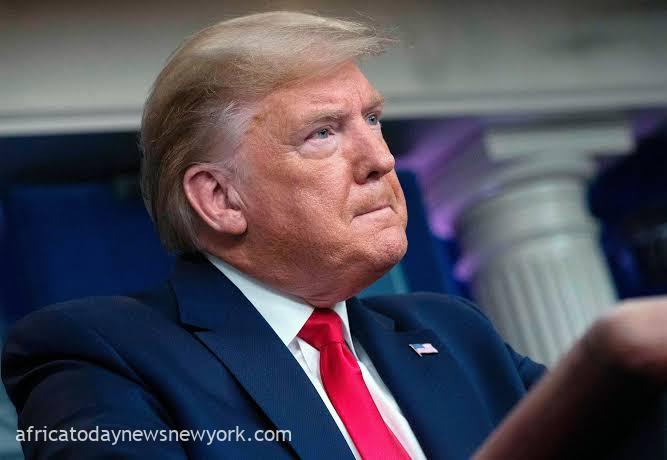The US Supreme Court is set to deliberate on Thursday whether former President Donald Trump deserves immunity from criminal charges related to his actions during his presidency.
The decision could redefine the limits of presidential power and have a substantial impact on Trump’s legal issues as he campaigns for the White House once more.
Constitutional law experts anticipate a legal defeat for Trump, but he may have already gained a political upper hand.
The Supreme Court’s decision to hear the case has potentially delayed Trump’s trial indefinitely, putting on hold his prosecution for allegedly conspiring to reverse the outcome of the 2020 presidential election, which Joe Biden won.
Until Trump, no former US president had faced criminal charges, making the question of immunity from prosecution an uncharted territory in American legal history.
“Famously, Richard Nixon engaged in criminal law-breaking,” said James Sample, a constitutional law professor at Hofstra University.
“But because he resigned, and (successor) Gerald Ford then pardoned him, we have never had to squarely address the notion of a criminal prosecution against a former president.”
Special Counsel Jack Smith filed the election conspiracy case against 77-year-old Trump in August and had pushed for a March trial start date.
But the Republican presidential candidate’s lawyers filed a blizzard of motions seeking to postpone the case against him, including the claim that an ex-president enjoys “absolute immunity.”
Two lower courts flatly rejected that argument but the Supreme Court agreed in February to hear the case.
One lower court ruled Trump’s immunity claim is “unsupported by precedent” or the US Constitution.
“We cannot accept that the office of the Presidency places its former occupants above the law for all time thereafter,” the judges said.
Nevertheless, Trump is eyeing a friendly hearing from a court he had a critical role in shaping, having appointed three justices to give it a 6-3 conservative majority.
Sample and other scholars said the high court was unlikely to hold that a president enjoys blanket immunity from prosecution.
“I find it hard to believe that even this very, very conservative, very pro-Trump Supreme Court will be inclined to find in favour of an argument that says a president is completely immune” regardless of his actions, Sample said, adding such a holding could be abused by any president.
“I think the scoreboard will read Jack Smith 1, Donald Trump 0.”
Like Sample, Steven Schwinn, a University of Illinois Chicago law professor, believes the calendar would be of greater consequence.
“Even if the court hands Trump a decisive, unqualified defeat, the prosecution will have to scramble to get the trial before the (November) election,” he said.
According to Trump, the absence of immunity would hinder a president’s capacity to function adequately or to make decisions that prioritize the nation’s well-being.
Smith rebuffed that argument in a Supreme Court filing.
“The President’s constitutional duty to take care that the laws be faithfully executed does not entail a general right to violate them,” he said.
Trump is under scrutiny for election-related allegations in Georgia pertaining to the 2020 election, while also being indicted in Florida on charges of mishandling classified documents.
Throughout this week, he attended the initial proceedings of his trial in New York, where he faces state charges of falsifying business records by using “hush money” payments to a pornographic actress before the 2016 election.

